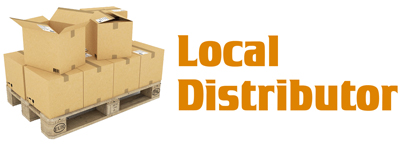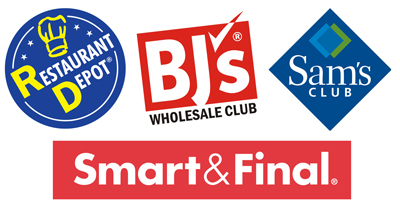This is Part 11 from 125 Building Blocks for Your Bakery Business

The closer you can get to the source of ingredients and packaging, the better price you will be able to secure. Cutting out the middlemen is the ultimate goal in purchasing. However, buying direct from a manufacturer is usually not possible except in very high-volume operations. For wholesale bakeries, this is something to strive for.
Avoid buying your supplies from retail stores. Except when you’re in a pinch, retail stores such as cake decorating supply shops or supermarkets are not a good source for bakery supplies and ingredients. When shopping at these kinds of stores, you pay a hefty premium on added packaging costs associated with small-volume purchases. These places should remain your last resort at all times.
Buy from Distributors

Most food businesses do their purchasing through local distributors because it consolidates and eases the shopping experience. Many distributors only work with licensed businesses so you will have to first establish yourself in that way. Distributors tend to deliver their products for free (within a certain range of distance from their facility) on a set schedule once per week, as long you meet their minimum delivery requirements and place your order in time. If your order is too small for delivery, you may exercise the option for pickup if that is allowed. Most distributors accept orders over the phone. Beware that distributors are rarely beacons of friendly customer service.
How to Shop from Distributors
The confusing aspect of working with distributors is that you don’t get to see the products before you buy them. Some but not all of what they sell is comparable to what you find in supermarkets. Typically, distributors house many more options when it comes to ingredients. It may take some time for you to learn how to decipher their product codes and descriptions. Before making a large purchase, you may ask for samples but there is no guarantee they will provide them. Note that a distributor’s willingness to dispense samples may be contingent upon the activity level of your business. Larger bakeries with established relations have more leverage when it comes to receiving samples. Brand new bakeries with no purchasing history don’t have the same rapport.
No matter what size your bakery is, you are allowed to call and ask distributors and manufacturers questions about their products. You may ask for advice as well. Experienced receptionists tend to know a lot about the products they warehouse. They also have the ability to put you on hold and go take a look at the instructions or ingredients listed on the box or even open it and describe its contents to you. If they can’t find the answer you are seeking, you may ask politely to speak to a salesperson or manager.
How to Bargain with Distributors
When it comes to buying from a distributor, you have the option to wheedle and bargain. For instance, as your volume of purchasing goes up, you can take advantage of “price breaks.” Price breaks are a type of discount made available above a certain threshold. In order to receive price breaks, you must ask where they lie. For example, let’s say you ask for the price of walnuts and the distributor tells you they are $25 per pound for a 10-pound case ($250 per case). However you use a lot of walnuts, enough that you have some leverage to negotiate a better price. Then you may phrase the question any of the following ways:
“Where are the price breaks?”
“Where is the first break?”
“How many cases do I need to buy to get a price break?”
A typical formulation for the answer might be:
“At 10 cases, the price per pound drops to $23.”
“If you buy more than 10 cases, the price goes down to $230 per case.”
If you normally buy five cases per month, then you are missing the price break. In that scenario, it would be wise to increase your order to ten cases every other month in order to earn the discount. As long as you have the storage capacity, over time you will save some money. Always account for the price breaks in this way so you can aim to make your purchases above them. Keep in mind that breaks and prices might change since the cost of ingredients tends to fluctuate.
Some distributors and manufacturers are upfront and transparent about their discounts and breaks. Others are cagey about it. Either way, it’s important to ask for breaks right from the start to assert your understanding of such things. Strong negotiating skills command respect in the food industry.
Buy from Retail-Style Wholesalers
 If your business is still in the growth stage and you haven’t yet qualified to purchase from distributors, then doing your shopping from bulk suppliers is the next best option. In the U.S., Costco offers decent prices on dairy as well as on dry ingredients like sugar and flour in bulk bags. Here are some more U.S. options:
If your business is still in the growth stage and you haven’t yet qualified to purchase from distributors, then doing your shopping from bulk suppliers is the next best option. In the U.S., Costco offers decent prices on dairy as well as on dry ingredients like sugar and flour in bulk bags. Here are some more U.S. options:
- Sam’s Club
- B.J.’s Wholesale Club (east coast only)
- Smart & Final
- Restaurant Depot
This is the end of Part 11 from 125 Building Blocks for Your Bakery Business. Return to the Table of Contents or proceed to Part 12 – Bakery Equipment Recommendations

Related Material




